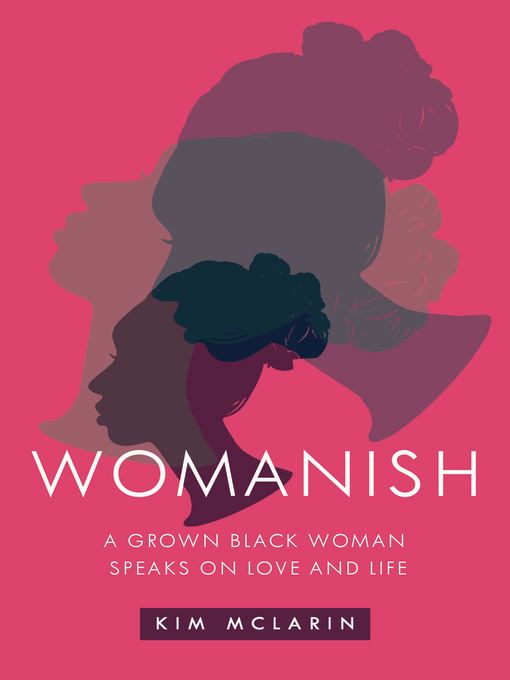
Womanish
A Grown Black Woman Speaks on Love and Life
کتاب های مرتبط
- اطلاعات
- نقد و بررسی
- دیدگاه کاربران
نقد و بررسی

November 1, 2018
Courage and outrage inform 13 essays about black womanhood.Novelist, memoirist, and essayist McLarin (Writing, Literature, and Publishing/Emerson Col..; Divorce Dog: Men, Motherhood and Midlife, 2015, etc.) gathers forthright essays reflecting on love, friendship, motherhood, and, above all, overt and "thinly-veiled" expressions of racism. At 15, McLarin left home to attend Phillips Exeter Academy, where she felt a growing anger at "an omnipresent cultural representation of Blackness as ugliness" and at an elite white community that deemed her an outsider. "This place, this world, these people do not mean for you to live," she believed. "You can go along and die. Or you can get pissed." Her anger "was safe and energizing and life-saving" but also isolating. Anger abated a bit at Duke only to surface again when she began to work as a journalist, where "resentful white reporters" whispered that she had gotten her job only because she was black and where she covered the effects of poverty, prejudice, and injustice. "I've been labeled angry, aloof, and even uppity," she writes, by people who could not "understand the origins of such projections." McLarin praises the Obamas for their "calm, centered, not-taking-it-personally response" to the endemic racism that "is as American as apple pie." Not as serene, after being "mistreated, disrespected, or generally screwed-over or wronged" 359 times (a "guesstimate") in her life, she twice resorted to revenge. And beginning when she was 17, she suffered recurrences of debilitating depression, a malady she had thought affected only whites: "Mental illness, mental disorder of any possible stripe, was definitely white folks' mess." In her candid title essay, she considers her transition from girlhood to womanhood, the female body, and her experiences of midlife online dating, where misogyny was apparent--misogyny, like racism, rooted in fear. "What white America fears," she writes, "is not Black people but the loss of white identity, privilege and position the Black presence demands and also the spiritual and culture power Black survival has produced."Bold, well-crafted essays on living, loving, and striving while black.
COPYRIGHT(2018) Kirkus Reviews, ALL RIGHTS RESERVED.

February 11, 2019
Borrowing from Alice Walker’s definition of womanish—which includes “outrageous, audacious, courageous, or willful” behavior—these 13 essays by journalist, novelist, and professor McLarin (Jump at the Sun) join the personal and the political. McLarin’s topics range broadly from the ravages of depression (“To demonize my depression to diminish the last 30-odd years of my life”) to the stress of parenting while black (“an exhausting job”), from the occasional value of revenge (“The truth is I am not ashamed of my two targeted, nonviolent, singular and specific acts of revenge”) to the perils of online dating (“loving a sociopath does not have to be all gloom and doom!”). By turns current (discussing the shadow of the Michael Brown killing and the “unassailable, meteorite-hard sense of self” of Barack Obama) and historically minded (recalling Ida B. Wells-Barnett or the figure of Eshu, the Yoruba trickster god), the essays are strengthened by relevant scholarly studies and statistical data readably scattered within. McLarin offers a frank vision of growing up black, unmediated by simplistic notions of a postracial America. Undeterred by having “been labeled angry, aloof, and even uppity,” McLarin is boldly argumentative, provocative, and challenging in these excellent essays.

























دیدگاه کاربران